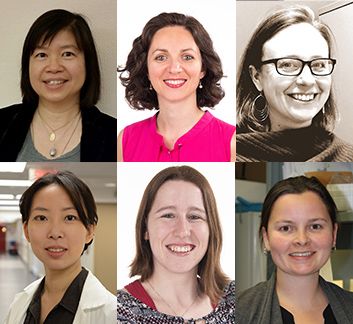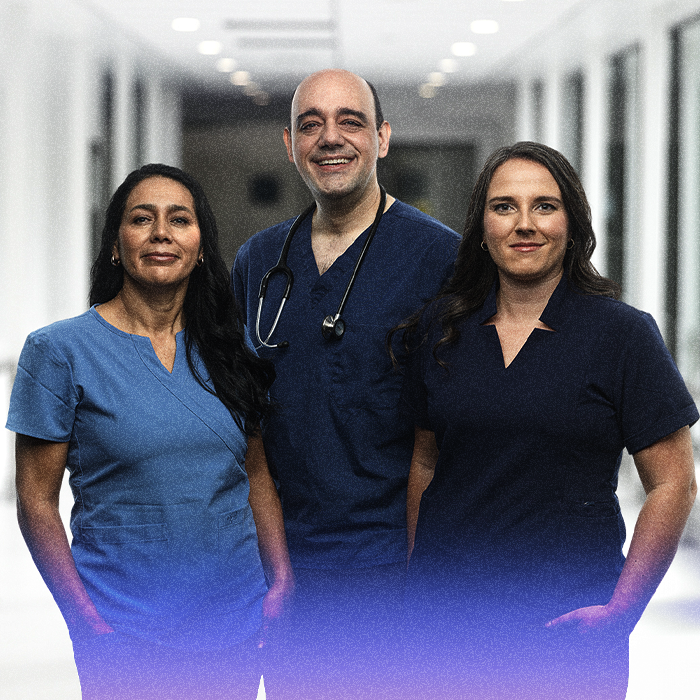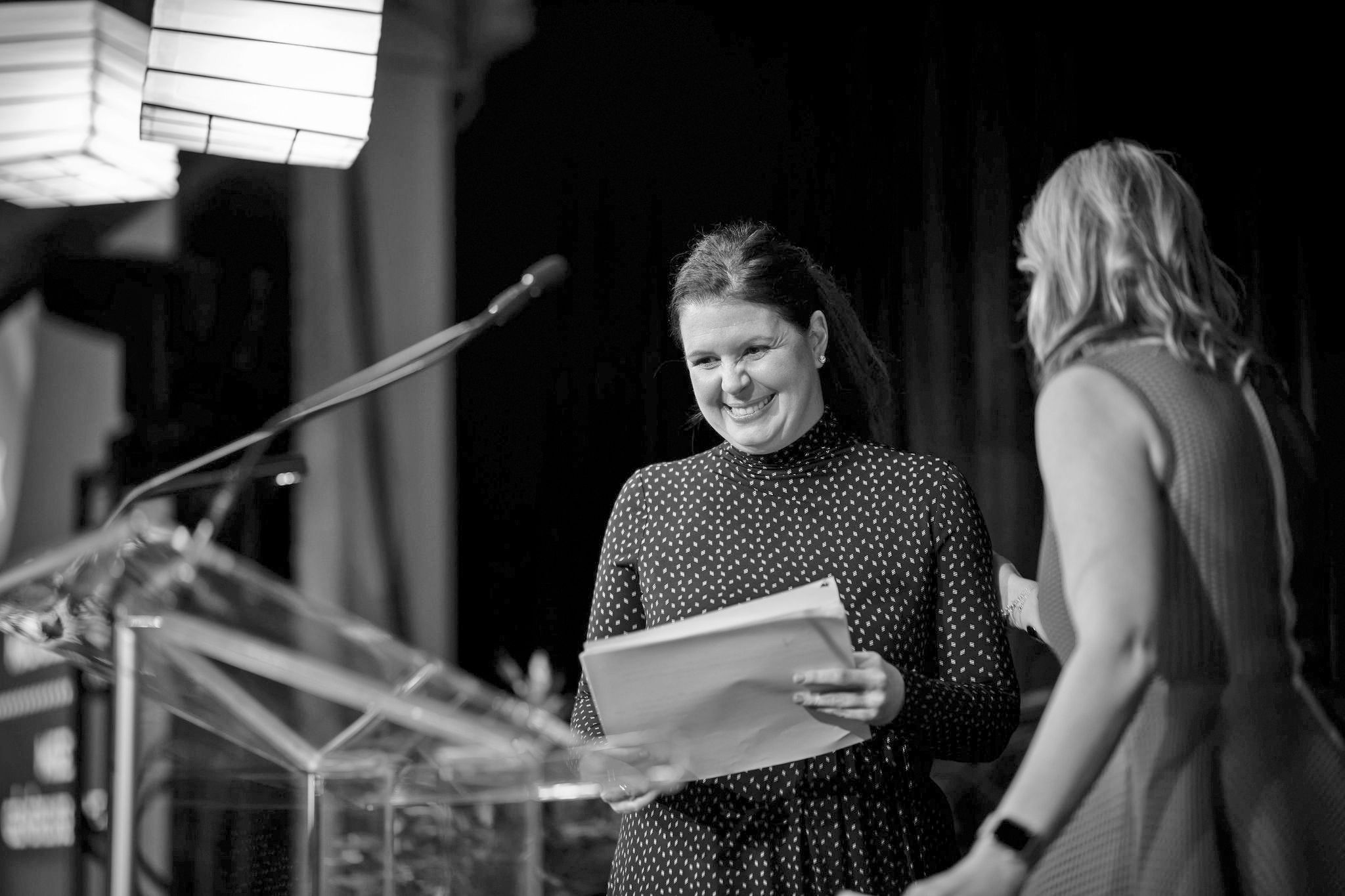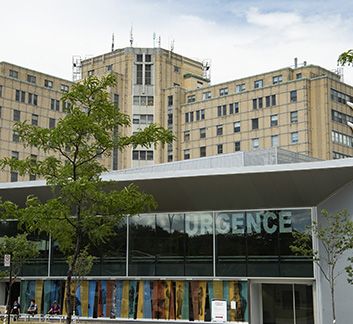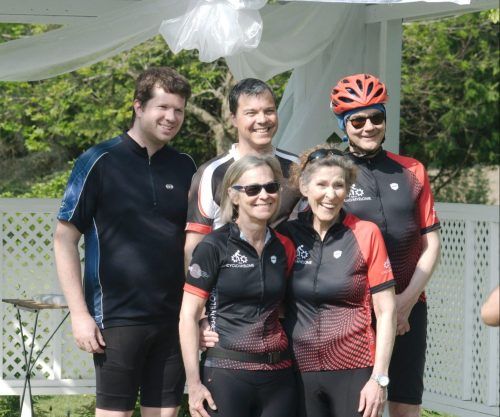International Day of Women and Girls in Science: Six inspiring women at the Hôpital Maisonneuve-Rosemont
11 February 2021
February 11 is the International Day of Women and Girls in Science. The Hôpital Maisonneuve-Rosemont (HMR) Foundation is marking the event by presenting six women researchers who drive medical science forward and whose work saves lives. Let’s discover them!
- Dr. May Griffith, researcher in ophthalmology
- Dr. Laura Hulea, researcher in immunology-oncology
- Dr. Heather Melichar, researcher in immunology-oncology
- Dr. Cynthia Qian, adult and pedriatric vitreoretinal surgeon
- Dr. Marion Dubuissez, postdoctoral fellow, Dr. Heather Melichar’s Laboratory
- Dr. Marie-Eve Lebel, postdoctoral fellow, Dr. Heather Melichar’s Laboratory
In addition to these six doctors, many women work daily to ensure the well-being of patients at Hôpital Maisonneuve-Rosemont. We congratulate them and thank them for their great work and commitment. Together with all health and research professionals, they are sources of healing.
Dr. May Griffith, researcher in ophthalmology
 Curious by nature, Dr. Griffith is currently working on the treatment of corneal perforations using a revolutionary method: liQD Cornea.
Curious by nature, Dr. Griffith is currently working on the treatment of corneal perforations using a revolutionary method: liQD Cornea.
Why did you choose research?
For me, it is very sad to know that we can be deprived of the natural beauty that surrounds us. Early on, I realized that people could lose their eyesight when I first saw another child with white eyes.
I still remember this blind child, and today I work in ophthalmology to cure corneal blindness.
Which achievement are you most proud of?
We have succeeded in showing that it is possible to regrow the human cornea, a tissue that was believed to be incapable of regenerating itself. I am particularly proud of this since several male scientists told me that I could never make such a biologically based implant. Fortunately, other colleagues believed in my work and gave me the inspiration to make this success happen.
What advice would you give to a young girl interested in science?
Choose a career and do something that you will love every day. The career you choose should be fun, rewarding, and make you want to work. There may be obstacles in the way, but believe in yourself, work hard, know when to ask for help, and you will get there.
Dr. Laura Hulea, researcher in immunology-oncology
 Passionate about science and knowledge, Dr. Hulea focuses on the study of cell metabolism and protein synthesis to understand how they work in patients suffering from, among other things, cancer and diabetes.
Passionate about science and knowledge, Dr. Hulea focuses on the study of cell metabolism and protein synthesis to understand how they work in patients suffering from, among other things, cancer and diabetes.
Why did you choose research?
My father is a professor and researcher in chemistry, so I grew up knowing the life of a scientist: passion, hard work and long lab sessions.
However, I only turned to biology in the middle of my undergraduate studies. It was an exciting course in biology that drew me to this specialization and then to the world of biomedical research.
Which achievement are you most proud of?
A lot of things in my work make me proud! If I had to choose, I think my work on the problem of cancer resistance to targeted therapies is particularly exciting and of interest for possible clinical translations.
What advice would you give to a young girl interested in science?
I would say that with self-confidence and hard work, she will be able to follow her passion, no matter the direction. Seek support from mentors you admire. I wouldn’t be where I am today without the advice of several people. Science is a life of learning that begins with the experience of those who have more than us.
Dr. Heather Melichar, researcher in immunology-oncology
 Through her research, Dr. Melichar seeks to improve knowledge about autoimmune diseases and the effectiveness of cancer immunotherapies.
Through her research, Dr. Melichar seeks to improve knowledge about autoimmune diseases and the effectiveness of cancer immunotherapies.
Why did you choose research?
My interest in science prompted me to study biology without having any career intentions. That is, until I was offered a job in a lab one summer. I immediately fell in love with research!
Even the most fundamental scientific studies can have major impacts on the development of new drugs or treatments for diseases. The idea that a laboratory discovery could affect thousands or even millions of lives is great.
Which achievement are you most proud of?
Students from the laboratory who take the lead in their respective projects rather than follow a specific research project. It’s amazing to see young students becoming outstanding scientists.
What advice would you give to a young girl interested in science?
Go for it! There are so many questions that need answers, and we need curious and intelligent women to solve these problems! The training you receive in science will open up many opportunities for you (beyond academic research). Look for mentors, colleges, and associates who care about your success.
Dr. Cynthia Qian, adult and pedriatric vitreoretinal surgeon
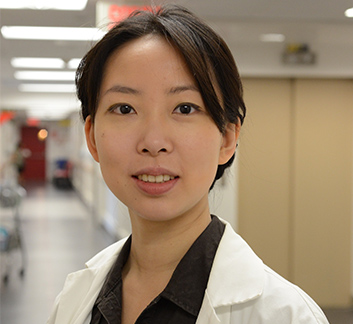 Dr. Qian specializes in rare eye diseases. Currently her work in gene replacement is very promising and will help treat Leber congenital amaurosis.
Dr. Qian specializes in rare eye diseases. Currently her work in gene replacement is very promising and will help treat Leber congenital amaurosis.
Why did you choose research?
Having undergone a period of illness myself during childhood, I have developed a true appreciation of what medicine can do and a deep sense of empathy towards those who suffer from disease. I wanted to put my knowledge and skills to help others.
It is a privilege for me to able to do basic science research related to ophthalmology and to translate the results directly into the care and surgical treatment of my patients.
Which achievement are you most proud of?
Each project I’m involved in gives me immense joy and pride.
Being one of the three surgeons in Canada to implant the Argus retinal prosthesis in people with advanced stage retinitis pigmentosa and who were completely blind, is certainly one. Another is having our center chosen as one of only two centers of excellence in Canada where the first Health Canada-approved gene therapy treatment for blindness will be administered.
What advice would you give to a young girl interested in science?
Be bold and go forth with confidence and optimism!
Dr. Marion Dubuissez, postdoctoral fellow, Dr. Heather Melichar’s Laboratory
 Every day, Dr. Dubuissez tries to reproduce, as faithfully as possible, a particularly aggressive form of leukemia mostly found in children. Upon conclusion of her research, she hopes to have a model so like that of humans that it could be used to identify new therapeutic targets and test new drugs.
Every day, Dr. Dubuissez tries to reproduce, as faithfully as possible, a particularly aggressive form of leukemia mostly found in children. Upon conclusion of her research, she hopes to have a model so like that of humans that it could be used to identify new therapeutic targets and test new drugs.
The HMR Foundation recently awarded her a grant to fund her research.
Why did you choose research?
I have always been passionate about science, especially biology. I moved into this field at university, and it was during my first internship in a research lab that I realized this was what I wanted to do. What I like most about my job is the constant intellectual stimulation that pushes us to continuously raise the bar.
What advice would you give to a young girl interested in science?
If she is curious and disciplined by nature, I would advise her to do an internship and give it a try! Research is a very competitive and rigorous environment. It is a very demanding job that requires a high level of involvement, but so exciting as well.
Dr. Marie-Eve Lebel, postdoctoral fellow, Dr. Heather Melichar’s Laboratory
 Dr. Lebel is working to enhance the effectiveness of cell therapies to improve treatments for various diseases. She recently received the Publication excellence award.
Dr. Lebel is working to enhance the effectiveness of cell therapies to improve treatments for various diseases. She recently received the Publication excellence award.
Why did you choose researc?
I was immediately fascinated by research. It is a rapidly changing environment that requires continuous training. I love gaining new knowledge, understanding how things work, and solving problems, which makes research the perfect job for me.
What advice would you give to a young girl interested in science?
I would tell her to trust herself. These fields can be intimidating at first, as there is so much to know and understand, but everyone started from scratch. In addition, a good way to find what excites her the most and to demystify these areas is to do internships or activities related to science such as participating in a science camp or fair.

